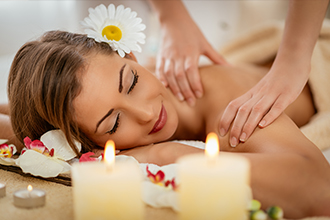-
Call us now
03 9088 8059 -
12 Wellington Parade
East Melbourne VIC 3002 -
Mon - Satday
08:00 to 20:00

Traditional wisdom for hair and skin health
Ayurveda, the ancient Indian system of medicine, established over 5,000 years back, encourages us to follow its roots to balance the doshas of body and mind. Ayurveda undeniably offers numerous solutions for the natural well being of hair and skin.
Ayurvedic treatment is much different from the contemporary medical techniques today and they try to heal the disease with the assistance of balancing the energy. Good health is dependent on a wholesome body, mind, and spirit. Obviously, the skin has a relationship with the deeper ecology of the body and mind.
Skin Diseases
Skin is nothing but a reflection of hidden realities within each of our bodies. Ayurveda is not the science of symptomatic treatment. It is actually meant for the removal of the root cause for the imbalance of the doshas. According to ayurveda, skin has seven layers.
Mostly skin diseases are the result of deeper imbalance, not merely an issue on the surface of the skin. The ayurvedic approach to dig deep may take a little more time, but that tends to offer the real and sustaining results. Ayurveda as a treatment modality with natural herbs can able to do a lot in terms of skin health.
Acne treatment in ayurveda
Beauty attracts all and everyone wants to look beautiful. Even a small spot on the face especially in the adolescence causes worry. Good skin and clear complexion creates a higher sense of confidence. Unfortunately, acne is a disease of puberty and this age group poorly understands the impact on the psychological aspects.
Acne vulgaris is a distressing skin care condition appearing in teenage years, causes spots and pimples on a person’s face, shoulder, back, upper arm and chest that are densely populated with sebaceous glands. When a person hits the puberty, sebaceous glands activate and produce excess oily secretions from the sebaceous glands leading to the blockage of hair follicles. However, acne can occur at any age. This condition is not dangerous but can leave scars and necessity for treatment is high as it carries a cosmetic importance. Peek severity is in the late teenage years but acne may persist into the third decade and more, may be due to hormonal imbalance and digestive issues. Severe whiteheads, blackheads, pimples, nodules, and cysts are the different forms of acne.
Correlation
In ayurveda it is called as yuvana pidaka. Yuvana means youth and pidaka means skin eruptions or pustules. It is also known as mukha dushika, which means that which causes harm to the beauty of face. The vitiation of kapha, vata and rakta produce vesicles resembling salmali thorns on face of youth. The lesions fills with meda (fat) with the involvement of rasa vaha and rakta vaha srotas. In ayurveda yuvana pidaka includes under ‘kshudra roga’. The incidence of youvana pidaka is increasing day by day due to consumption of junk food which leads to imbalance of doshas.
Ayurveda, the science of life, has its significant contribution in this regard. For protecting one’s beauty from the day to day stress impacts and seasonal effects on the body, ayurvedic dinacharya, ritucharya and sadvritta are to be followed. Abhyanga, udvartana, snana and anulepana are some of the procedures explaining in the context of protection from skin disorders and for improving texture and complexion.
Causes of acne
Common causes of acne are
• Intake of junk food, fast food, fried and fatty foods
• Ama formation due to Irregular eating habits
• Constipation and indigestion
• Excess intake of sugar
• Careless living habits and uncleaned skin
• Less intake of water
• Hereditary
• Reduced sleep
• Hormonal imbalance in the adolescence
• Over intake of non vegetarian food
• Mental illnesses such as stress and anxiety
• Hot and humid climate
• Excess intake of tea, coffee, tobacco and alcohol
• Over use of cosmetics
Ayurvedic herbal treatment for acne
Ayurveda treats yuvana pidika as a disease due to the imbalance of internal constitutional factors mainly due to improper diet habits.
• Ayurvedic acne treatment includes right diet and lifestyle management according to the body type to balance the vitiation of vata and kapha doshas.
• Herbs to subside the vitiation of rakta
• Some specialized ayurvedic herbal medications that tackle the disease from its root cause.
• Follow proper diet and eating habits
• Try to minimise kapha aggravating diet
• Try to keep regular timings for food and sleep
• Intake of 8-10 glasses of water per day
• Keep face clean and wash with lukewarm water
• Meditation and some of the yoga asanas will help to live stress free
• Ayurvedic detoxification and rejuvenating treatments stabilises vitiated doshas
• Swedana or local fomentation will help to open up the blocked srotas
• Panchakarma treatments such as vamana, virechana, nasya and raktamokshana
• Herbs such as turmeric, neem, guduchi, cinnamon, shalmali, kushta, lodhra, manjishta, chandana, sariva and vacha are to be used for the correction of imbalanced doshas.
• Ayurherbs provides effective treatment for acne vulgaris with correcting the root cause the disease.
To sum up, Ayurveda is effective and can be considered for
• Acne
• Psoriasis
• Eczema
• Urticaria
• Corns
• Dry scratchy skin
• Fissure in sole
